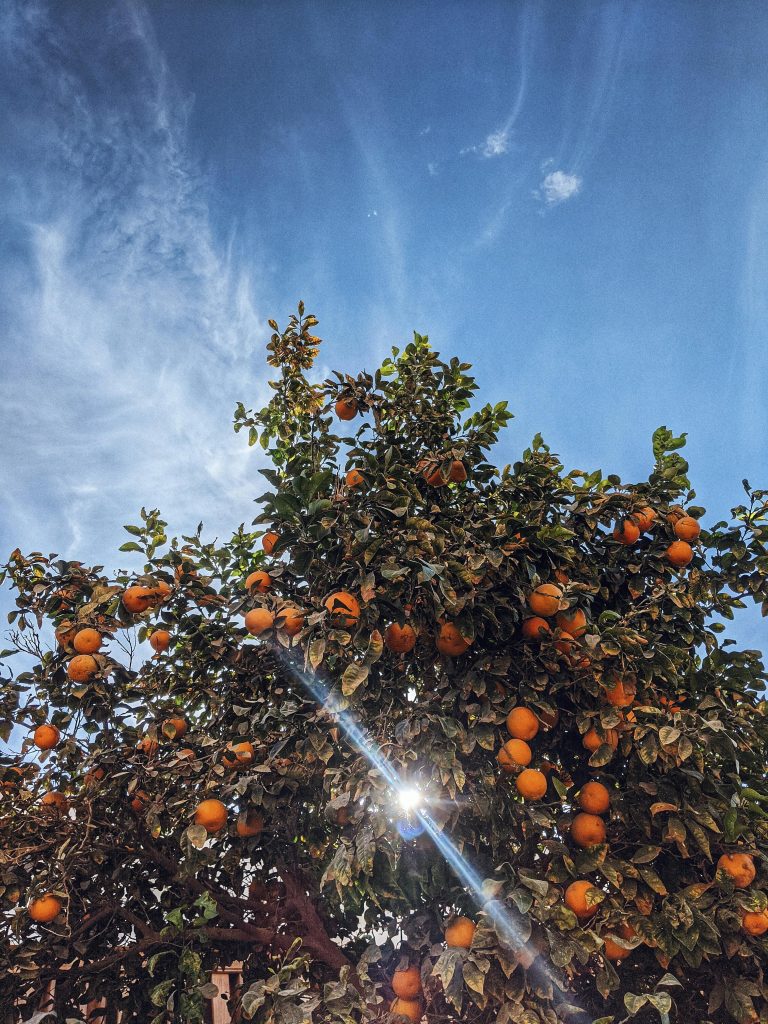Growing fruit trees organically is not only environmentally friendly but also promotes soil health, biodiversity, and the production of nutritious fruits. By adopting sustainable practices and avoiding synthetic chemicals, gardeners can cultivate thriving fruit trees while minimizing harm to the ecosystem. In this article, we’ll explore a range of organic methods for caring for fruit trees, from soil preparation to pest and disease management, ensuring bountiful harvests and a healthier environment.

1. Soil Preparation: Healthy soil is the foundation of organic fruit tree care. Begin by testing the soil pH and amending it as needed to achieve a pH level suitable for fruit tree growth. Incorporate organic matter such as compost, aged manure, or leaf mulch to improve soil structure, fertility, and moisture retention. Avoid synthetic fertilizers, which can harm soil biology and disrupt nutrient cycling.
2. Mulching: Mulching around the base of fruit trees helps conserve soil moisture, suppress weeds, and regulate soil temperature. Apply a layer of organic mulch such as wood chips, straw, or shredded leaves, keeping it several inches away from the trunk to prevent rot and disease. Mulch should be replenished regularly to maintain adequate coverage and decomposition.
3. Watering: Proper watering is essential for fruit tree health, especially during periods of drought or hot weather. Water fruit trees deeply and infrequently to encourage deep root growth and drought tolerance. Use a soaker hose or drip irrigation system to deliver water directly to the root zone, minimizing water waste and reducing the risk of foliar diseases.
4. Pruning and Training: Pruning is vital for shaping fruit trees, promoting airflow and light penetration, and removing diseased or damaged branches. Prune fruit trees during the dormant season, making clean cuts just above a bud or lateral branch. Use sharp, sterilized pruning tools to minimize damage and prevent the spread of pathogens. Train young fruit trees to a central leader or open center form, depending on the tree’s growth habit and desired shape.
5. Pest and Disease Management: Organic pest and disease management focus on prevention, cultural practices, and biological controls rather than chemical interventions. Encourage beneficial insects, birds, and other predators that prey on pest insects by providing habitat, water, and food sources. Monitor fruit trees regularly for signs of pest infestations or disease outbreaks, and take prompt action to address problems using organic methods such as handpicking pests, applying horticultural oils or insecticidal soaps, and introducing beneficial nematodes or predatory insects.
6. Nutrient Management: Maintaining proper nutrient levels is essential for fruit tree growth, flowering, and fruit production. Use organic fertilizers such as compost, fish emulsion, bone meal, or seaweed extract to provide essential nutrients and micronutrients to fruit trees. Apply fertilizers sparingly and according to soil test recommendations to avoid nutrient imbalances or excesses that can harm tree health.
Organic fruit tree care emphasizes sustainable practices that promote soil health, biodiversity, and ecological balance while producing nutritious fruits for you and your family to enjoy. By following these organic methods for soil preparation, mulching, watering, pruning, pest and disease management, and nutrient management, you can cultivate thriving fruit trees that provide bountiful harvests year after year, all while minimizing harm to the environment and promoting the health of the ecosystem.



